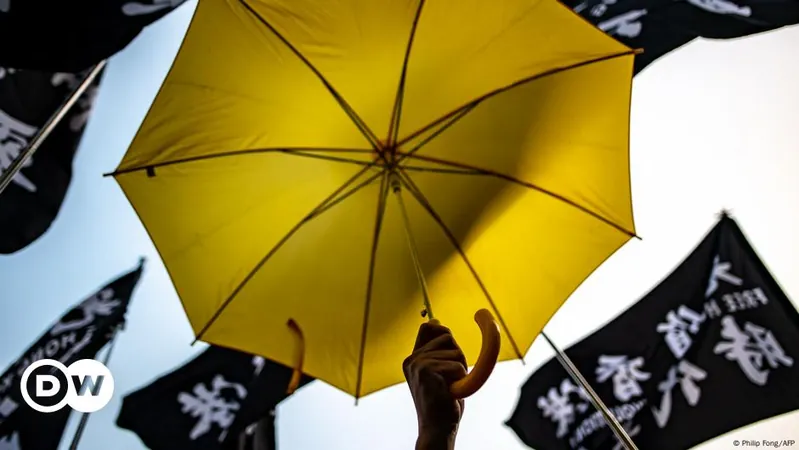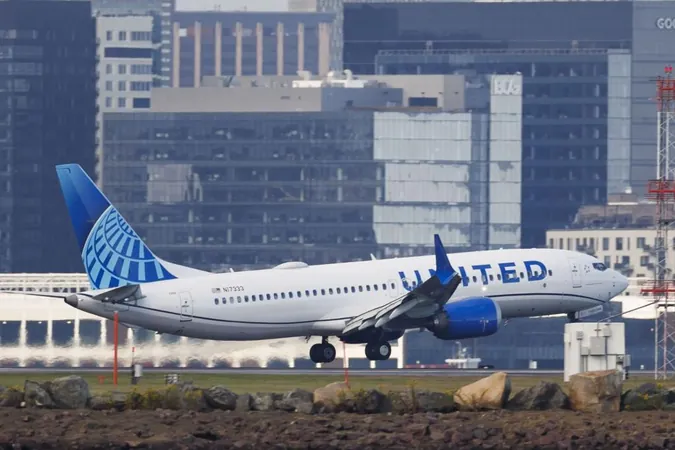
A Decade Later: The Echoes of Hong Kong's Umbrella Movement Still Resonate
2024-09-27
Introduction
As we mark the ten-year anniversary of the pivotal Umbrella Movement in Hong Kong—a time when over a million citizens rallied for democracy and free expression—its legacy has been overshadowed by increasingly oppressive measures from the authorities.
Recent Developments
Just last week, a Hong Kong resident was sentenced to 14 months in prison for simply wearing a t-shirt emblazoned with the slogan, "Liberate Hong Kong, revolution of our times." This sentencing underscores a grim reality as three individuals were recently incarcerated under Hong Kong's controversial national security law for relatively minor pro-democracy actions.
Impact of Legal Actions
Among those jailed was Chung Pui-kuen, the former editor-in-chief of Stand News, who received a 21-month sentence for "sedition." Experts like Megan Khoo, a researcher at Hong Kong Watch, have observed that such legal actions instill fear in the community.
Disillusionment Among Activists
Reflecting on the initial spirit of the Umbrella Movement, many activists express disillusionment today. Roy, a Hongkonger who now resides in Taipei, lamented the stark contrast between the early days of activism—while they sought constructive dialogue with the government—and today's atmosphere of strict repression.
Background of the Movement
Originally, the motivation for the protests stemmed from concerns over Beijing's proposed reforms to Hong Kong's electoral system, which many viewed as a direct threat to the foundations of democracy and fairness.
Protests and Police Crackdown
In those early days, peace was the guiding principle for protesters, who occupied major areas of Hong Kong for 79 days. However, the movement's conclusion was marked by a severe police crackdown that introduced tear gas as a weapon for the first time since Hong Kong's handover to China in 1997.
2019 Anti-Extradition Bill Protests
This shift towards violence not only shocked many activists but also forced them to rethink their strategies as they entered the harrowing 2019 Anti-Extradition Bill protests. That summer, citizens rose once more in defiance against what they saw as Beijing's encroachment on their freedoms, resulting in some of the most intense confrontations in Hong Kong's recent history.
National Security Law and Repression
In a dramatic turn, Beijing imposed the national security law on Hong Kong in 2020, leading to a chilling wave of political repression. Prominent activists were arrested, many received draconian sentences, and several key figures, such as Nathan Law, fled into exile as the climate of fear tightened.
Hope and Resilience
Looking back, Roy views the journey of pro-democracy movements in Hong Kong as fraught with setbacks, yet he remains hopeful. "There are still individuals committed to creating change in this altered landscape," he remarked, noting that while some have opted out of activism to focus on personal financial stability, others are finding new, lawful methods to continue their struggle for change.
Conclusion
As the anniversary serves as a reminder of what was once a powerful push for democracy, activists and citizens alike continue to navigate a landscape that has grown increasingly hostile, unwavering in their belief that change is still within reach.





 Brasil (PT)
Brasil (PT)
 Canada (EN)
Canada (EN)
 Chile (ES)
Chile (ES)
 España (ES)
España (ES)
 France (FR)
France (FR)
 Hong Kong (EN)
Hong Kong (EN)
 Italia (IT)
Italia (IT)
 日本 (JA)
日本 (JA)
 Magyarország (HU)
Magyarország (HU)
 Norge (NO)
Norge (NO)
 Polska (PL)
Polska (PL)
 Schweiz (DE)
Schweiz (DE)
 Singapore (EN)
Singapore (EN)
 Sverige (SV)
Sverige (SV)
 Suomi (FI)
Suomi (FI)
 Türkiye (TR)
Türkiye (TR)